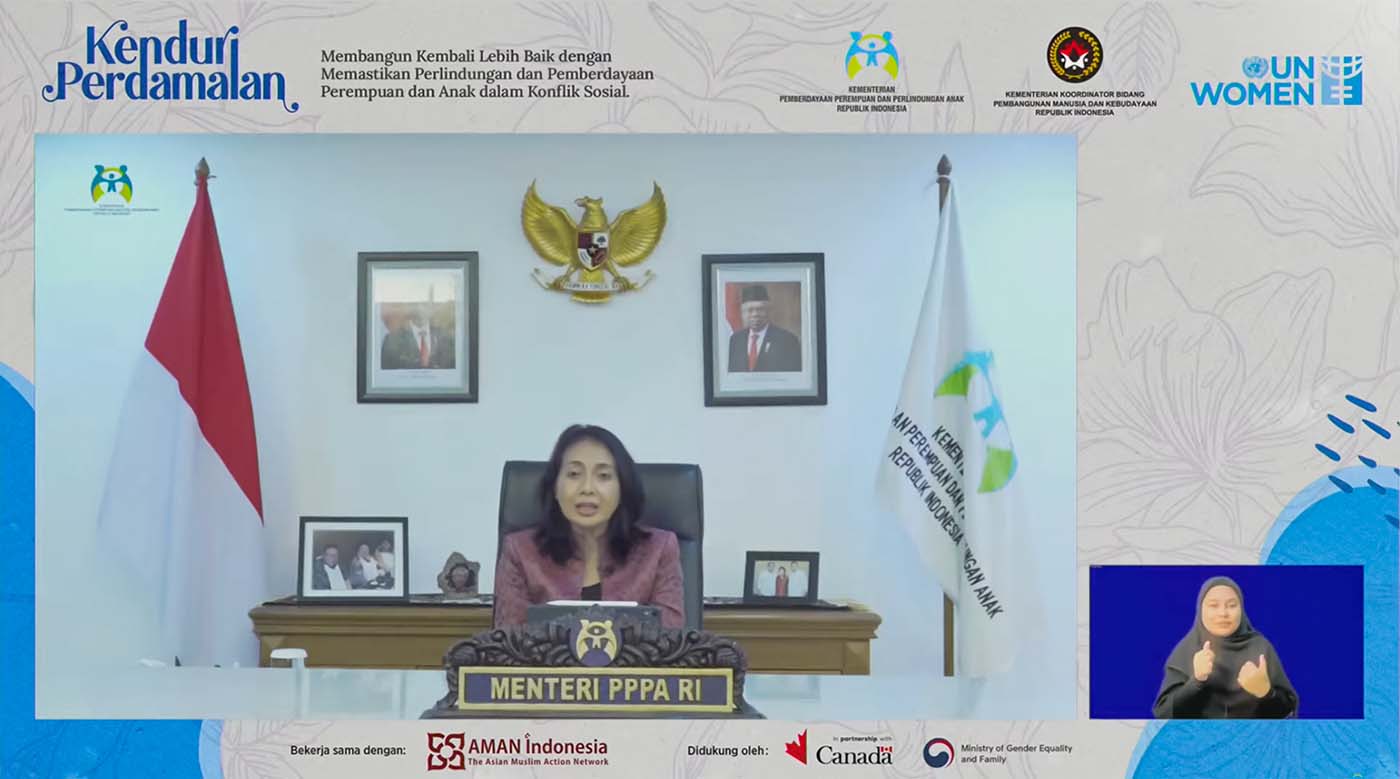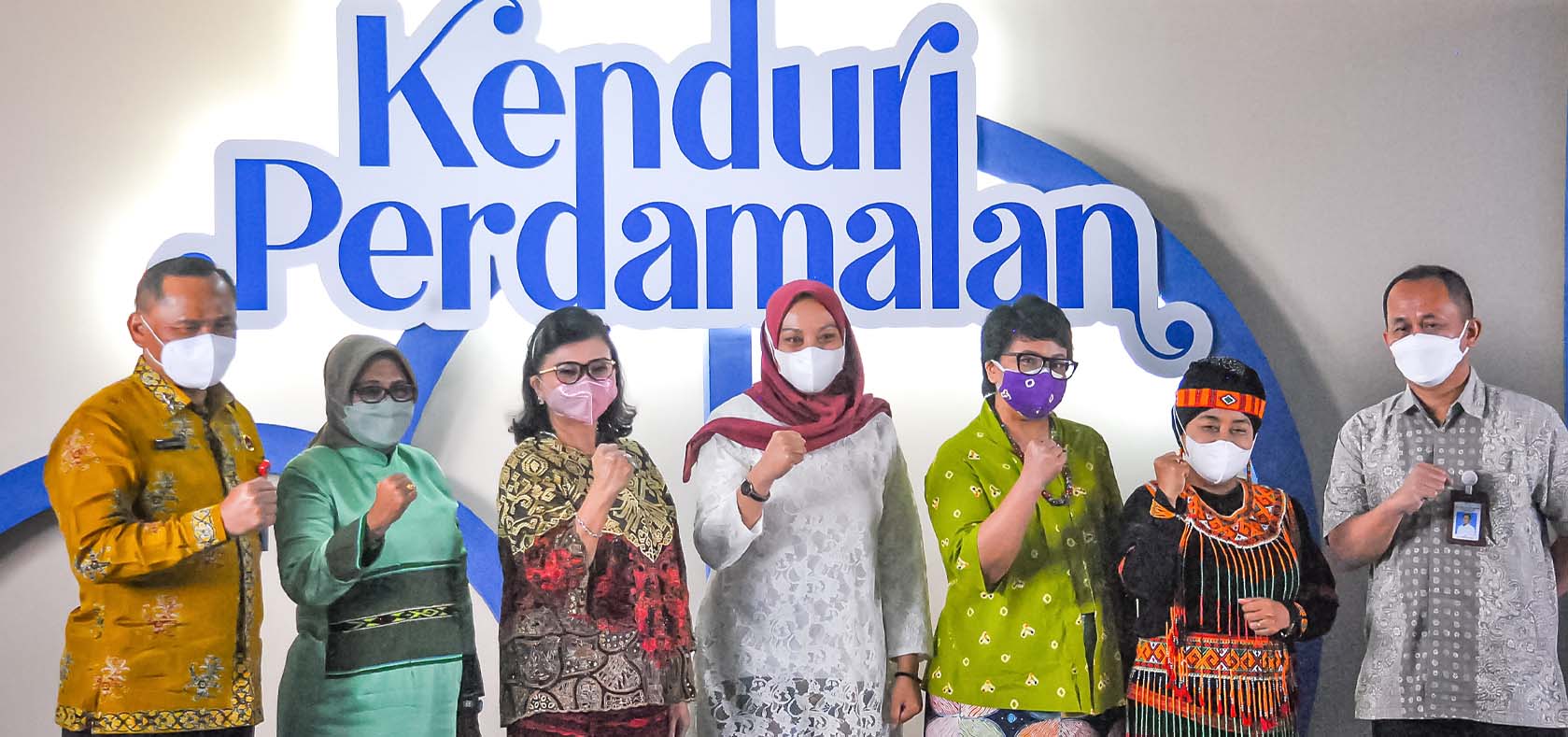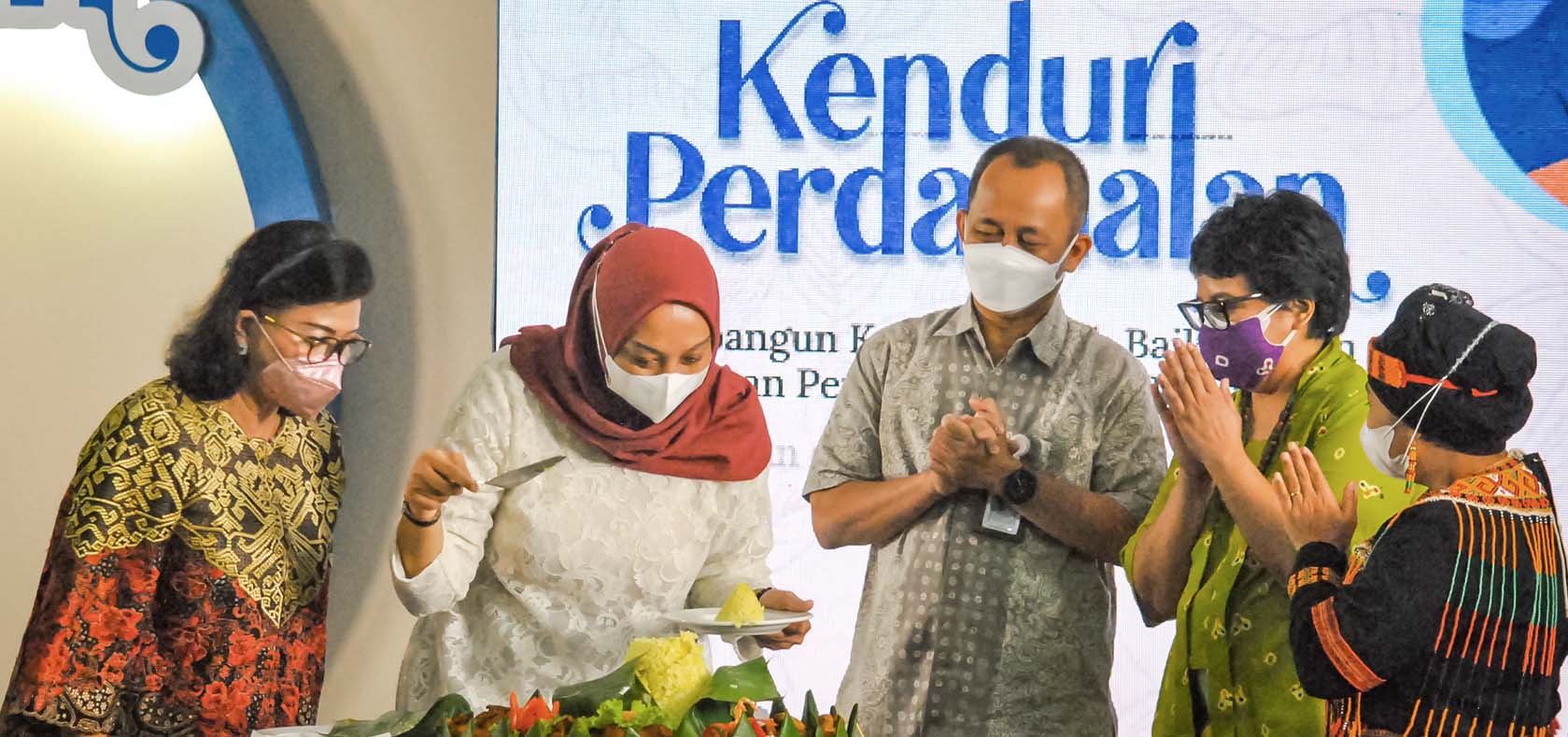
Bintang Puspayoga, minister of women’s empowerment and child protection, emphasized that women and children are among the most vulnerable to conflict situations. “It is our shared hope that this NAP will become an instrument to strengthen further coordination and collaboration between ministries, agencies, local governments, and civil society organizations to protect and empower women and children in social conflict,” said the minister.
“The NAP is an expression of the political will of the government and people of Indonesia to prevent gender-based violence in various regions that have a potential for social conflict,” said Femmy Eka Kartika Putri, deputy for coordination for quality improvement of children, women and youth at the Coordinating Ministry for Human Development and Culture.
She also urged those regions affected by social conflict to involve and engage women in peace processes, from conflict negotiations to resolution and management. “We hope that Indonesia will change the long-held stigma that women are victims of conflict situations and present them rather as agents of international peace and security,” she said.
Indonesia launched the first NAP for the Protection and Empowerment of Women and Children in Social Conflict in 2014. The second generation will continue to serve as a blueprint for the government to implement the United Nation’s Security Council Resolution (UNSCR) 1325 on WPS (2000). The NAP remains the basic reference point for strengthening three pillars of prevention, mitigation, and empowerment and participation.
The WPS agenda is vital to addressing the pressing and growing non-traditional security challenges in Indonesia, including the ongoing COVID-19 pandemic. The second generation of NAP on WPS highlights the importance of preventing violent extremism, and other specific security issues that women and girls face in the current context, such as land disputes and conflicts over natural resources, disinformation and hate speech.
“These are the points that made this NAP both relevant and contextual and also very strategic, especially with Indonesia’s Presidency in the Group of 20, which takes the theme Recover Together, Recover Stronger,” said Dwi Faiz, head of programmes for UN Women Indonesia. “The second NAP on WPS emphasized the need for a special strategy to face various phenomena such as violent extremism, online radicalization, climate change and the COVID-19 pandemic, which have disproportionately impacted women and girls.”

